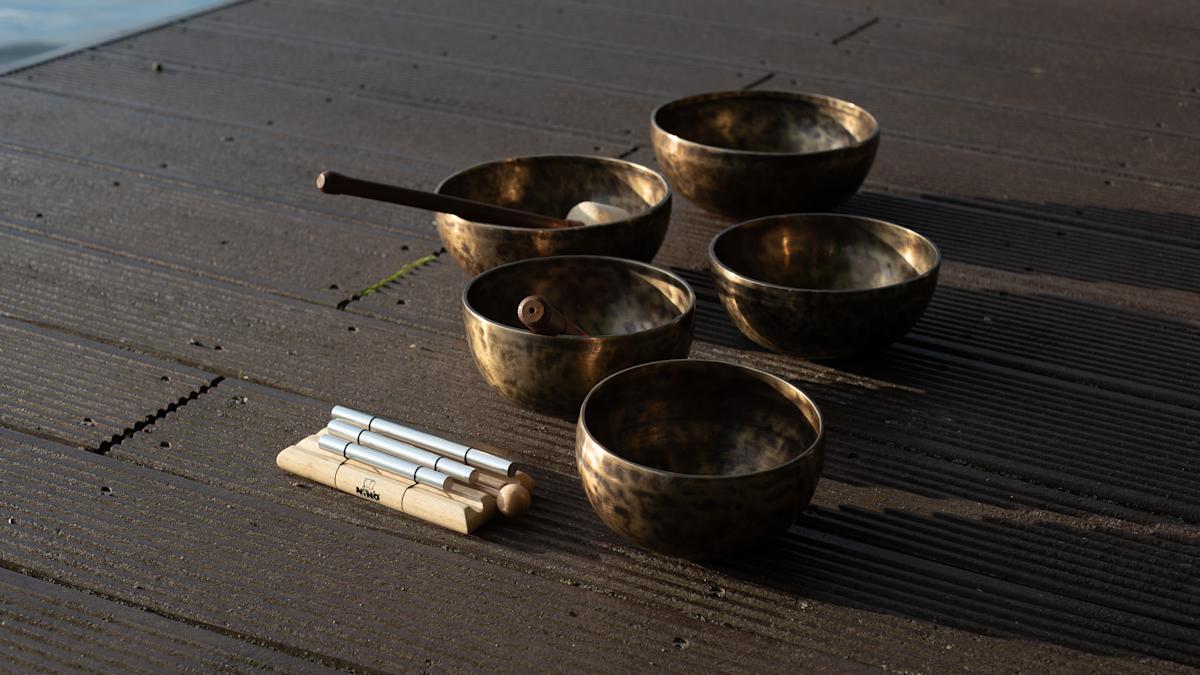
Soundbath Session - Fundraiser
Ambient soundscapes and healing tones on August 13th
Loading

Inside THF: the community-led campaign aiming to transform Berlin.
By Tarn Rodgers Johns
In recent years Berlin has experienced record-high temperatures, severe storms and heavy rainfalls as a result of climate change. Max Mauracher and Cléo Mieulet are members of Transformation Haus und Feld (THF), a coalition of climate activists in Berlin urging governments and citizens to take a practical approach to climate adaptation in the city.
The long-term goal of THF is to turn part of the 300,000m² former Tempelhof Airport into a Halle für Alle (Hall for All) where Berliners from all walks of life can collaboratively devise solutions for a socially and environmentally sustainable city.
Earlier this year, THF led a series of ‘future workshops’ around Berlin to gather ideas about what the Halle für Alle could look like. Ideas included a repair café where materials can be upcycled and repaired and people can learn practical skills, a kitchen and community garden, meeting spaces, art studios, and offices for civil society groups. THF believe that without citizens' initiatives, climate adaptation will be something that only the privileged can afford.
An iconic, publicly owned building in the centre of the city, THF see Tempelhof Airport as the perfect location for the project. However, the path so far hasn’t been smooth. The space is managed on behalf of the state by a private company, Tempelhof Projekt GmbH, which has come under fire in recent years for negotiating “backroom deals” with private parties.
In 2022, as part of a broader coalition of artists, urban planners and civil society groups, THF ran a successful campaign to end a private agreement to host an Art Gallery in the airport hangars, after the gallery was widely criticised and boycotted by the Berlin arts community for the intransparent and elitist use of the space.
In a massive win for the project, the Transformationsbündnis (Transformation Alliance) was then given the go-ahead by the Senate Department for Culture to prototype the Halle für Alle. But with a new CDU-SPD coalition in Berlin, the future of grassroots initiatives that rely on the cooperation of the state remains uncertain, while the need for bottom-up solutions to the climate crisis is as urgent as ever.
The latest IPCC report was unequivocal in its conviction that we need to see “far-reaching and rapid changes across all sectors and systems” in order to avert the worst effects of global warming. The big question is how? We spoke to Max and Cléo about the goals of Transformation Haus und Feld, the Transformation Alliance, the importance of grassroots climate initiatives, and the role of arts and culture in promoting socio-ecological transformation.
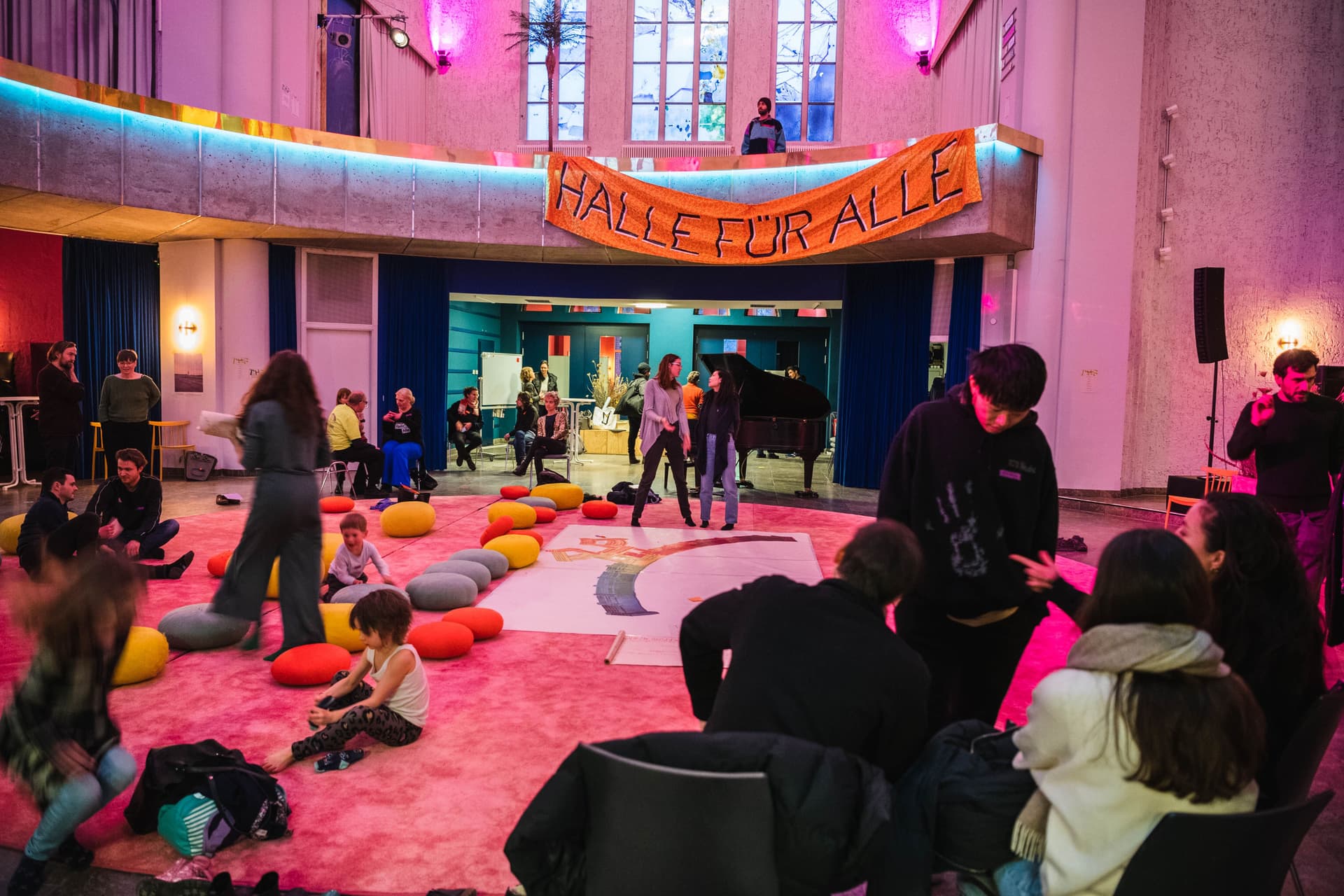
How do you describe the vision and mission of THF, and how it relates to the other organisations and initiatives you are involved in - including the Transformationsbündnis?
Max: We are trying, with the alliance, to turn the former airport Tempelhof into a transformation centre where everyone, not just one specific group but all citizens of Berlin, can share knowledge and skills, and get prepared for the transformation that needs to take place if we are to address climate change in a fair and just way. When we talk about transformation we are talking about socio-ecological transformation: getting energy in a different way, doing agriculture in a different way, living together in different and more socially inclusive ways. We think this building is a good place for this because it’s such a strong presence in the city, and at the moment it’s mostly unused.
Cleo: It’s really about finding a path, a way through. Resilience and adaptation to climate catastrophe and the social challenges it represents will be a big theme in the years to come. If food systems are disrupted, we need to learn how to grow food here in the city and nurture urban biodiversity, as well as skills like repairing, upcycling, and implementing circular economies. Most importantly, this needs to happen in a fair and just way, so that it’s not just the bourgeois and the privileged who are able to adapt.
The other story we want to tell is that we can transform fossil fuel infrastructure into something useful for everyone, and this airport is one example. We also have malls that are nearly empty, and these spaces could be repurposed for skills sharing and learning, and bringing more justice and friendliness into our city. We have so many social challenges, we need more non-commercial public spaces where we can meet each other and get to know our neighbours.
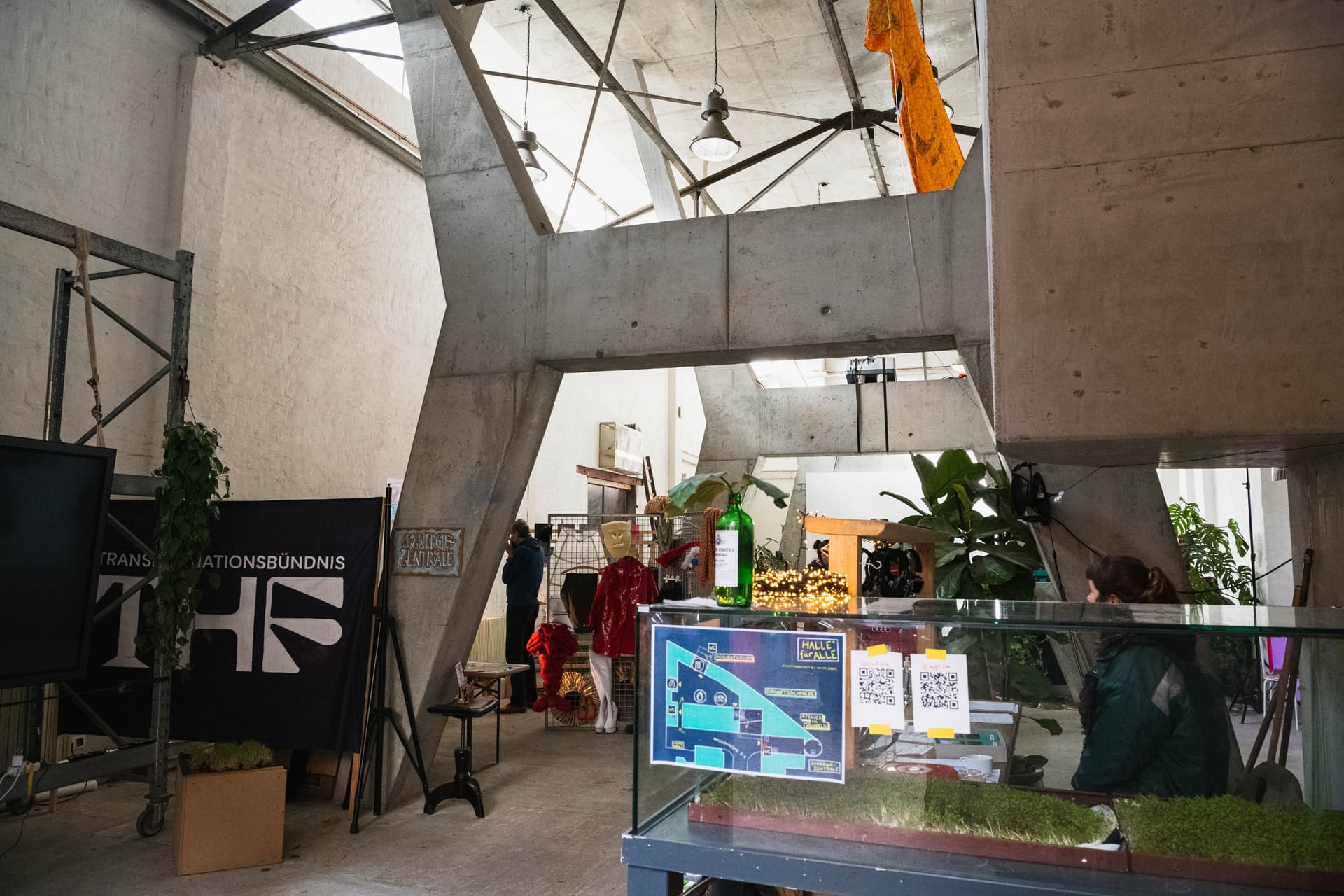
Can you paint a picture of the alliance? Which organisations are involved, and how did you end up forming an alliance?
Cleo: The alliance includes different civil society organisations from the fields of arts, culture and urban planning, as well as activist and refugee organisations. We realised we shared a common vision of having more non-commercial, public-interest spaces for art, culture and learning in the city. The goal is to have as many voices represented as possible; a place where everyone can come and learn to take an old bike apart and build a new one, or run a Küche für Alle (kitchen for all). A place where knowledge is shared and abilities learned so that people can take what they learn back into their Kiez and impart this knowledge there.
The climate crisis is a huge problem, so we need a very broad alliance to tackle it.
How do you plan to achieve this?
Cleo: To achieve this we want to cooperate with the city government, to form a common-public partnership, rather than the private-public partnerships we so often see. The goal is to establish a reliable structure for all the civil society groups and people in the arts and culture sector who do not currently have access to reliable funding for the benefits they provide to our city and the role they have in creating behaviour and cultural change from the bottom-up.
What comes to mind is one of the headline messages from the IPCC reports, that we already have all the solutions we need to act on climate change and reduce emissions, what we lack is the political will, part of that of course also includes the political will to finance grassroots climate solutions. So what’s the call to action here?
Max: One call to action is definitely cooperation. With the new black-red coalition in Berlin we are expecting that this will create a strain for many actors, so I would say it’s coming together to share resources, capacities and skills. Really get active.
Cleo: And self-organisation as more than just a tool, as a culture. We can come together to find out what kind of power we want; more local power, more decentralised power, and more shared power between politicians and civil society. Civil society has a lot of skills and a lot of expertise, we don’t want to let that go to waste.
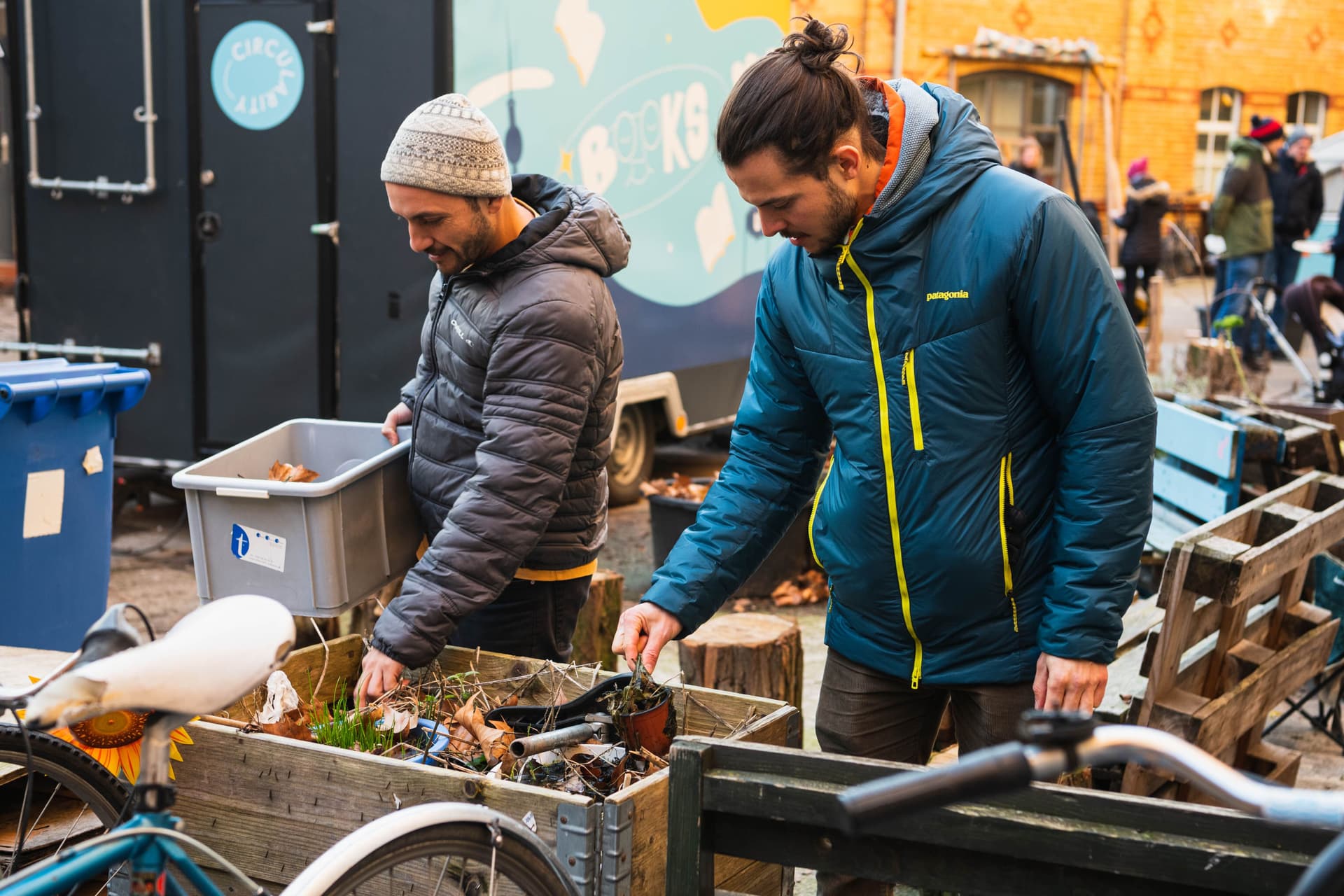
How do you plan to bring different groups on board with this vision?
Max: The best thing would be to be able to show people the benefits so that they can experience what a consumption-free public space for all could look and feel like.
Cleo: The exploitation of people and exploitation of nature have the same root, and profit the same people. However, at the moment the discourse about socio-ecological transformation is often happening between a relatively small, quite intellectual section of society.
One goal of the alliance is to find ways to go into different neighbourhoods and propose solutions in collaboration with associations that are already embedded there. For example, we applied for funding to go into the Rollberg Kiez to install solar panels, which would help people to reduce their electricity bills, so that people can experience the real benefits of these solutions.
With the rising cost of living, food and particularly vegetables have become so expensive, so another way is to start community gardens, so that people can grow herbs and tomatoes and see how they can get these things for free. If we can help address real problems with these solutions, we’ll gain new strength as a movement.
Why is it important to have everyone on board?
Cleo: Every building, every Kiez, is going to have to adapt to climate change. It’s going to be a lot of work, and the administration doesn’t have the resources or the vision to realise it. There’s already a problem with a lack of skilled workers. We can’t wait for it to be done for us, it’s going to be us, the citizens, that create change from the bottom up. Staying passive is not a solution.
Max: Transformation isn’t going to happen in a top-down way. Not at all. It’s a do-it-yourself job.
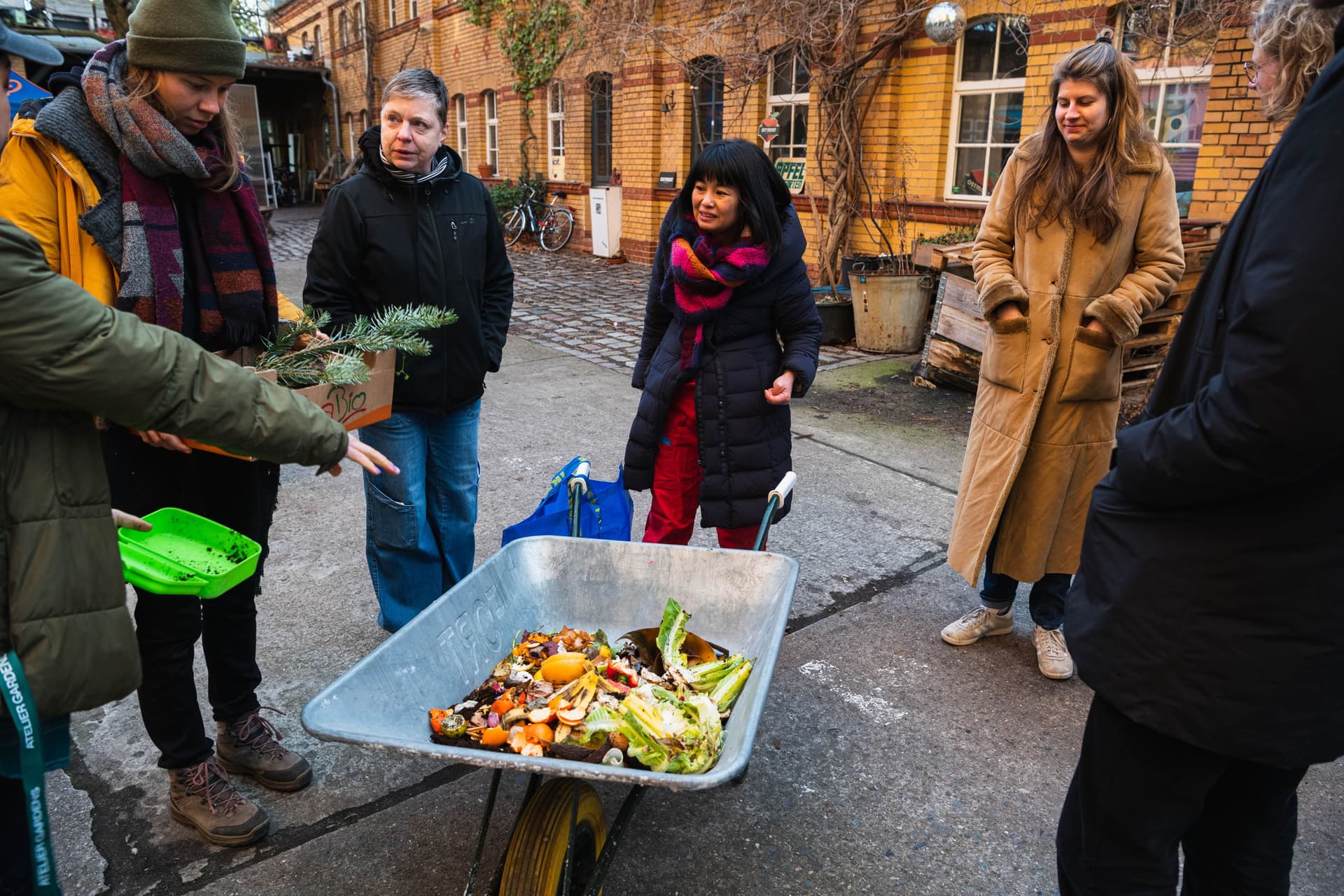
Also, I think policy often responds to cultural pressure, rather than the other way around, which brings us back to the role of arts and culture in all this. You pointed out that when it comes to transformation people need to be able to feel it, people need to be able to imagine it. Arts are one way to do that. Can you speak more about that?
Max: For us arts and culture are such great tools to make topics like climate justice and sustainability easier to talk about. People can relate to it, they have an opinion about it, and it connects on an emotional level and makes us feel things.
Cleo: Arts and culture have this ability to cut to the truth. Scientists and researchers have all the facts and figures, but they don’t always have the skills to tell that story in a direct and emotional way. Culture can help you, it activates you, it invites you to be creative in imagining your own future.
So a big part of this is unlocking that creative potential that we all have.
Max: Yes and to come back to the question of political will, the problem is not a lack of goals or targets, but of vision. If you only value profit, then you’re missing so much socio-cultural and non-monetary value that exists in civil society to help achieve the goals and targets that are being set, often at the EU level, to address climate change.
So to wrap up, what would it look like in 10 years' time if you succeeded?
Cleo: In the UK there is a beautiful network called the Climate Emergency Center network. They want to create a European network of climate emergency centres, transformation centres, for people to learn the skills to rewild, grow food, repair, share knowledge and non-hierarchical ways of organising. If we had that, all over Europe, in every big city, spreading the knowledge into the social fabric, it would be fantastic.
Max: And of course, we would like to see Berlin become a climate-neutral city, with the Airport Tempelhof as our transformation centre. We'd like to see the space fully renovated, open and running.
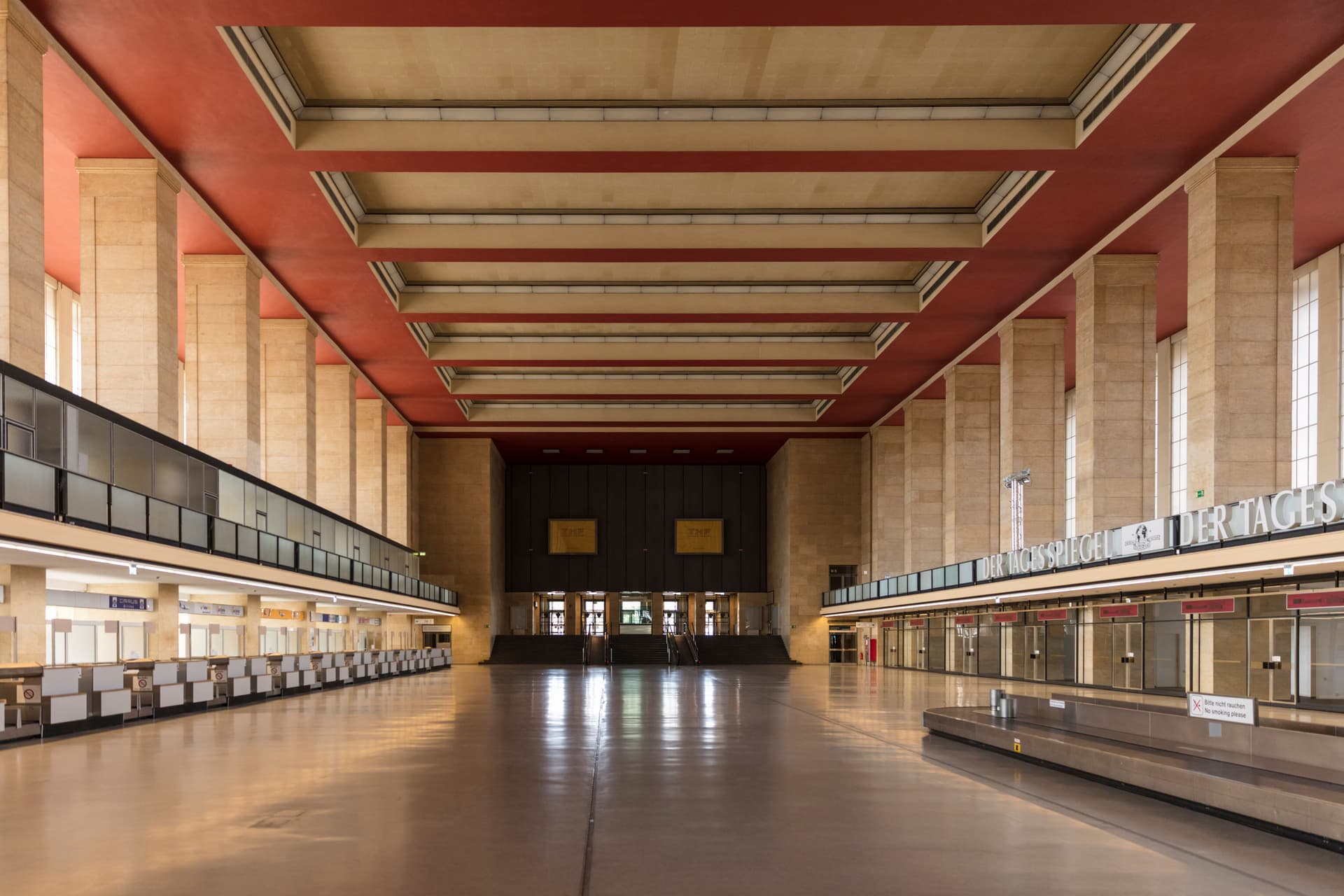
Find out more about THF and the Transformationsbündnis.
Since the disappointing results of the Berlin 2030 Klimaneutral referendum (which received significantly more votes than the CDU), THF has also been part of Plan B, a new grassroots initiative focused on implementing climate neutrality in Berlin from the neighbourhood level up. Find out more about the project here.
Images courtesy of Transformation Haus und Feld.